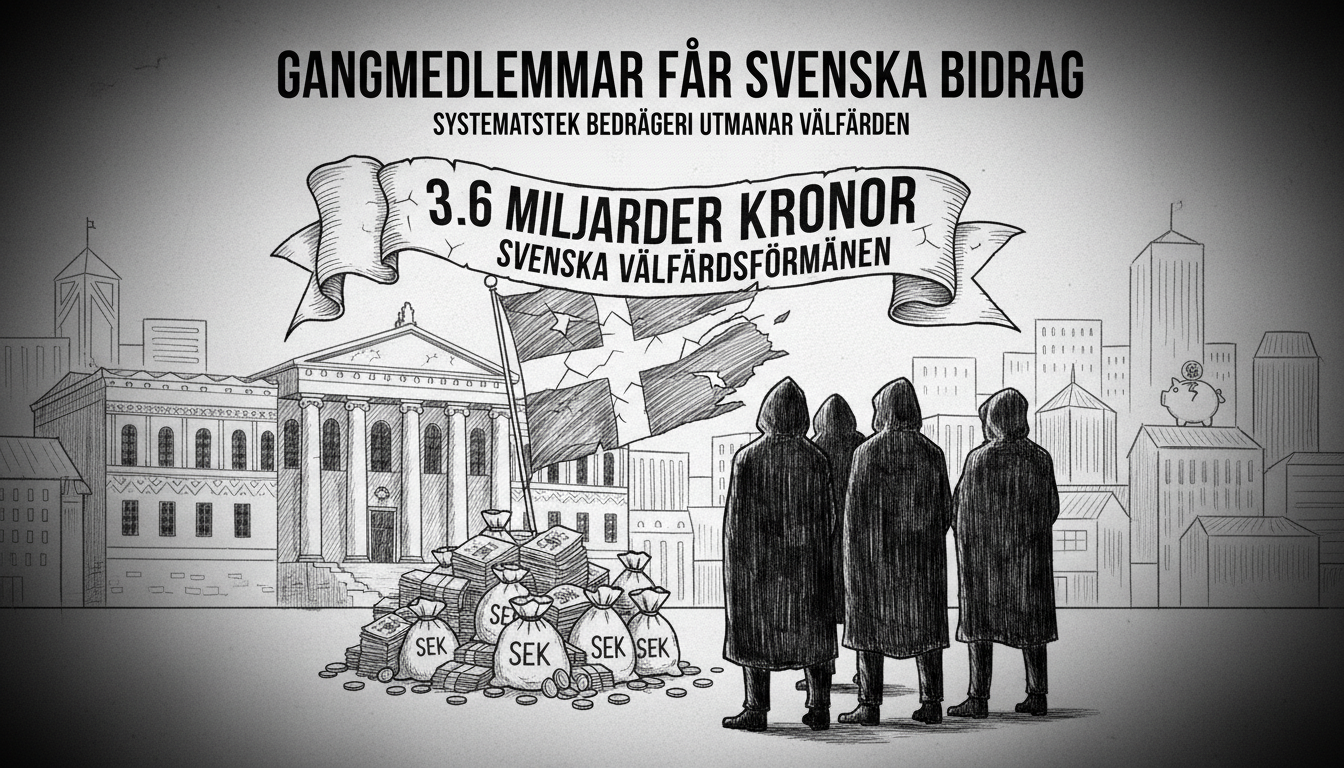Approximately 4,000 individuals with gang criminal connections receive their basic income from various Swedish welfare benefits according to a recent government report. The Swedish Social Insurance Agency investigation reveals these payments total 3.6 billion kronor distributed primarily through sickness benefits, disability pensions, and activity support. Senior Minister Anna Tenje described the findings as astonishing and deeply provocative in her official statement.
These individuals meet police definitions for active gang criminality or gang connections. The report documents systematic fraud patterns including falsified medical certificates and sham separations where couples divorce on paper but continue cohabitating. This represents a significant challenge for Sweden's welfare system integrity.
Swedish Parliament members are demanding immediate policy responses following the report's release. The Riksdag building has hosted emergency sessions addressing welfare system vulnerabilities. Government officials from Rosenbad acknowledge the need for systemic reforms to prevent criminal exploitation of social safety nets.
Sweden's welfare system historically maintained high public trust with comprehensive social protections. This report marks a substantial challenge to that tradition. Previous Riksdag decisions established Sweden's generous welfare framework now facing unprecedented exploitation.
The investigation methodology combined police intelligence with Social Insurance Agency payment data. This cross-referencing approach identified specific individuals receiving benefits while maintaining gang affiliations. Stockholm politics now focus on balancing welfare accessibility with fraud prevention.
Government policy Sweden must address multiple competing priorities. Minister Tenje emphasized maintaining support for legitimate claimants while closing criminal loopholes. The Swedish government faces complex legislative challenges in reforming benefit distribution systems.
International observers note Sweden's situation reflects broader European patterns of welfare system exploitation. The Swedish model often serves as reference for other Nordic countries facing similar challenges. Current Riksdag decisions will likely influence regional policy approaches.
Swedish Parliament committees are examining specific reform proposals ahead of the Third Quarter legislative session. Government districts in Stockholm are coordinating with law enforcement agencies to develop verification protocols. The scale of payments involved suggests sophisticated criminal operations rather than individual fraud attempts.
This represents a critical moment for Swedish social policy. The government must demonstrate effective response capabilities while preserving welfare system foundations. Future Riksdag decisions will determine whether Sweden can maintain its social contract while combating organized criminal infiltration.

